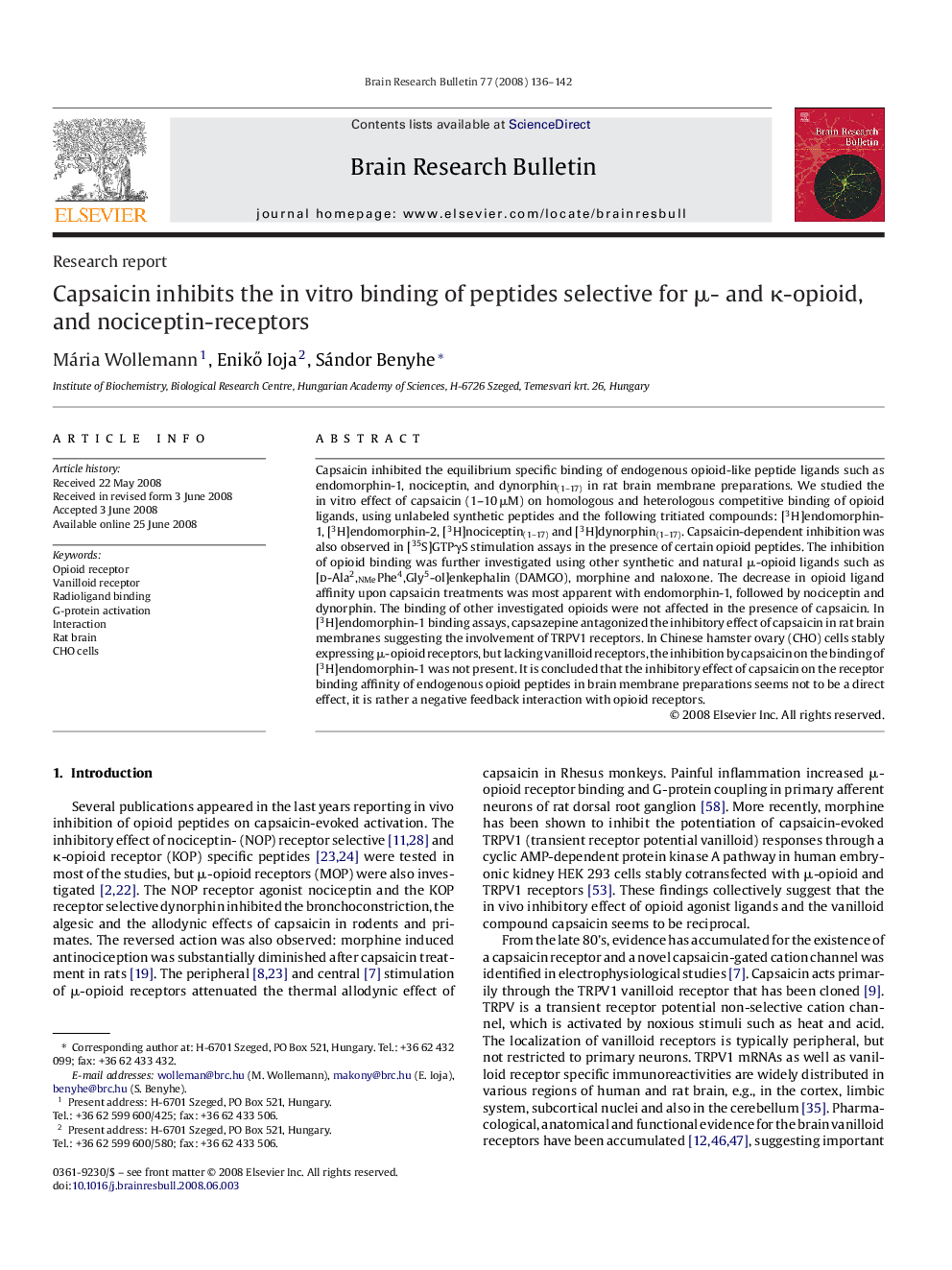| Article ID | Journal | Published Year | Pages | File Type |
|---|---|---|---|---|
| 4320021 | Brain Research Bulletin | 2008 | 7 Pages |
Capsaicin inhibited the equilibrium specific binding of endogenous opioid-like peptide ligands such as endomorphin-1, nociceptin, and dynorphin(1–17) in rat brain membrane preparations. We studied the in vitro effect of capsaicin (1–10 μM) on homologous and heterologous competitive binding of opioid ligands, using unlabeled synthetic peptides and the following tritiated compounds: [3H]endomorphin-1, [3H]endomorphin-2, [3H]nociceptin(1–17) and [3H]dynorphin(1–17). Capsaicin-dependent inhibition was also observed in [35S]GTPγS stimulation assays in the presence of certain opioid peptides. The inhibition of opioid binding was further investigated using other synthetic and natural μ-opioid ligands such as [d-Ala2,NMePhe4,Gly5-ol]enkephalin (DAMGO), morphine and naloxone. The decrease in opioid ligand affinity upon capsaicin treatments was most apparent with endomorphin-1, followed by nociceptin and dynorphin. The binding of other investigated opioids were not affected in the presence of capsaicin. In [3H]endomorphin-1 binding assays, capsazepine antagonized the inhibitory effect of capsaicin in rat brain membranes suggesting the involvement of TRPV1 receptors. In Chinese hamster ovary (CHO) cells stably expressing μ-opioid receptors, but lacking vanilloid receptors, the inhibition by capsaicin on the binding of [3H]endomorphin-1 was not present. It is concluded that the inhibitory effect of capsaicin on the receptor binding affinity of endogenous opioid peptides in brain membrane preparations seems not to be a direct effect, it is rather a negative feedback interaction with opioid receptors.
